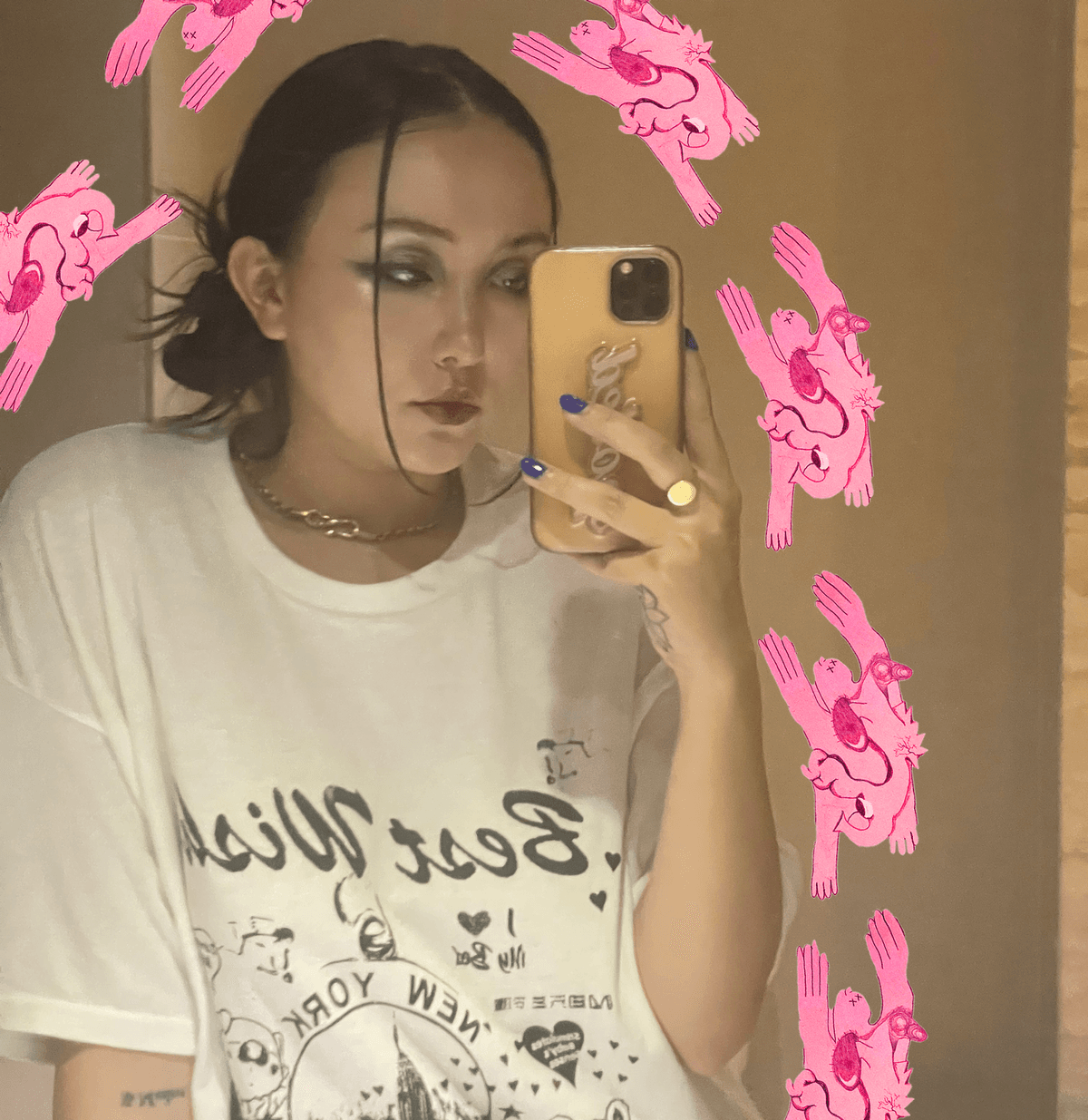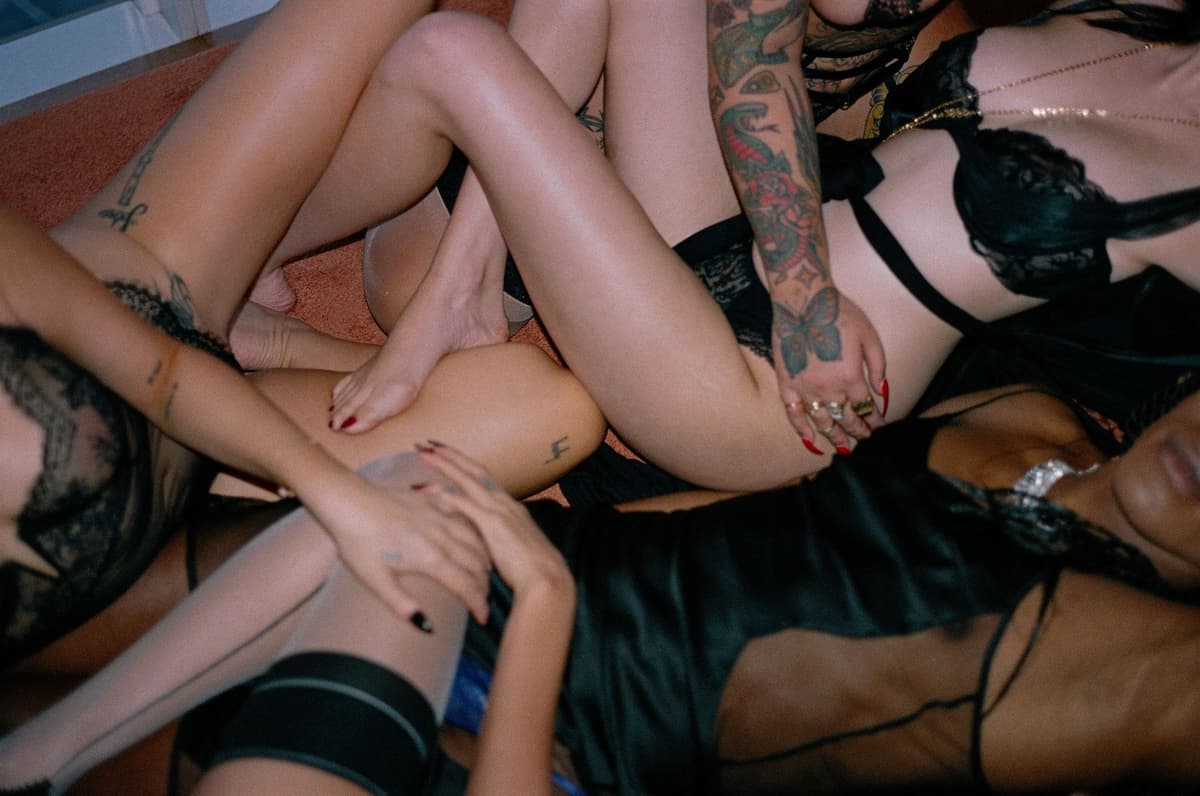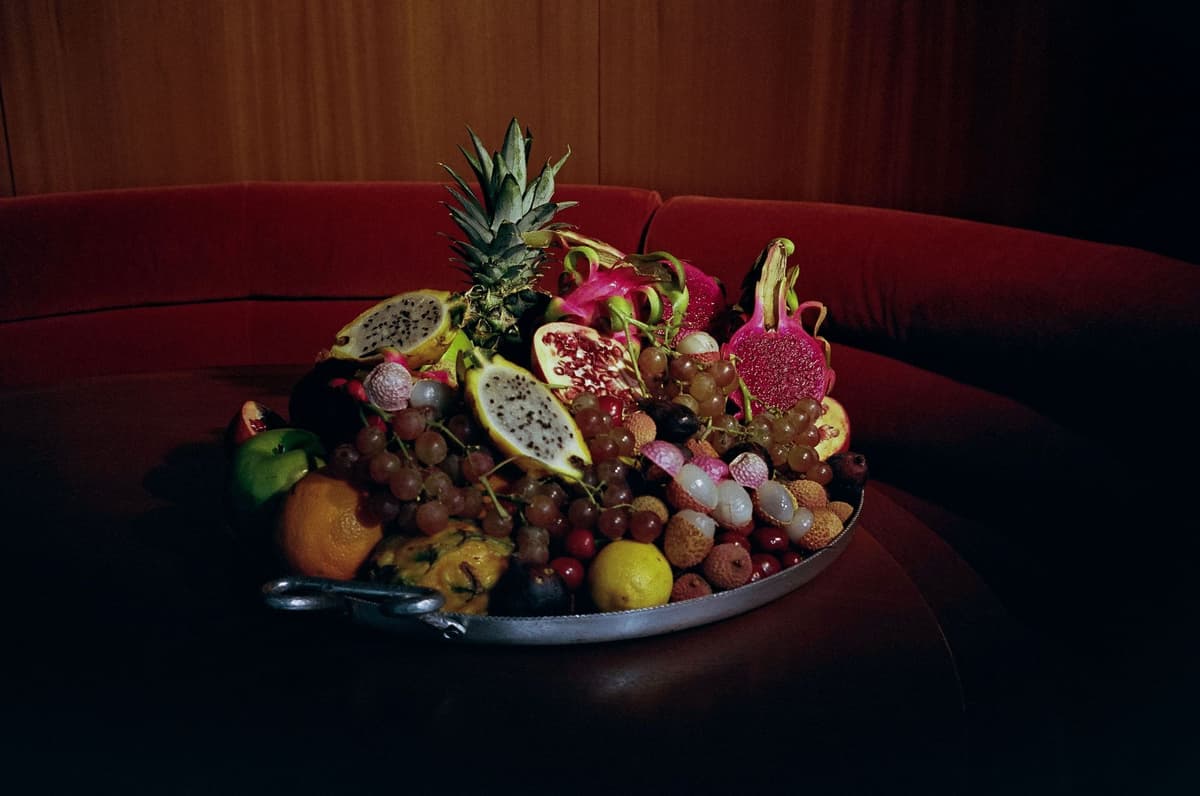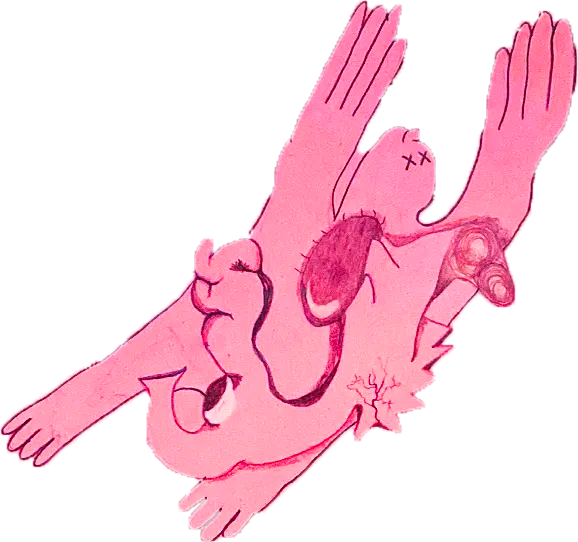SIN SIN SIN
Rachel Oyster Kim

[Sex work] is a very poetic thing to experience and write about–it’s intimate, it’s soft and pillowy, it’s luxurious, and you get to live inside of the fantasy, like, just as much as your client.
TESS POLLOK: You’re a writer, poet, public-facing sex worker, and activist; your new poetry chapbook, Sin Sin Sin, is sold out as of the writing of this interview, but there’s possibility of a re-release in the future. It’s about luxury, pleasure, and excess–in the foreword, Rachel Rabbit White describes it as “sheer opulence.” What motivated you to write about these topics?
RACHEL OYSTER KIM: Sin Sin Sin was born out of my experiences with sex work and my relationship to capitalism and my industry. The titles of the poems, “Gala,” “Luxuria,” “Nividia,” etc. are the Latin translations for each cardinal sin, my favorite being that Gala means Gluttony. I’ve written poetry before but I’ve also done a lot of activism relating to sex work. I worked with the non-profit 501(c)3 Third Wave Fund to help facilitate the Sex Worker Giving Circle, which involved fundraising and doing grant-writing for sex workers, as well as distributing money to sex workers. I raise awareness about issues that sex workers face–I don’t need to talk about Chapo Trap House here, do I? [Laughs]
POLLOK: [Laughs] No, I think that ground’s been well tread. What made you want to write about sex work in the first place?

OYSTER KIM: It’s just a very poetic thing to experience and write about–it’s intimate, it’s soft and pillowy, it’s luxurious, and you get to live inside of the fantasy, like, just as much as your client. I think to some extent you really have to embody whatever it is you’re acting out just to survive, but right now I feel good about it, almost like I’ve concluded some kind of karmic cycle. I’m also proud of the activist work I’ve done around sex work, I feel like sex workers have the potential, and frequently are, some of the most radical people in the room. Obviously, there are outliers–I’ve met sex workers who were landlords, sex workers who, like, love cops. [Laughs] But I think the criminality of sex work puts you at odds with the very basis of capitalism and that sex workers have great communication skills, which can be useful when organizing.
POLLOK: The poetry is explicitly sexual, while the images are mostly of you and your friends embracing intimacy and glamor. What type of desire were you speaking to with this project? The intimacy between friends that borders on sexual? The sexually charged relationships we experience with anyone we’re intimately connected to?
OYSTER KIM: The work is not necessarily about the intimacy of girlhood, but–I’m trying to define it. Trauma-bonded is the wrong word, but it’s fundamentally about the unique experience of how sex, capital, and criminality intersect in the lives of sex workers and bring us together. Rachel Rabbit White is a friend and her book Porn Carnival was a huge inspiration for my poetry. Most of the artists I’m inspired by are my friends and I wanted to capture the parties we were having at the time in a staged way that felt purposeful and meaningful.
POLLOK: I wanted to ask about “staged intimacy” and how that relates to the work. Is there anything lonely about seduction in the context of sex work?
OYSTER KIM: [Laughs] I actually find performance and transactional femininity more draining in the context of the creative industry than in sex work. I quite enjoy it because the only time I feel like my labor is fully appreciated is when I’m getting paid thousands of dollars for it.

POLLOK: Who are some of your favorite poets?
OYSTER KIM: My close friends are all my inspirations: Again, Rachel Rabbit White and Porn Carnival, Elaine Kahn, and also Maya Martinez, who wrote Hole Play.
POLLOK: Who are some of your favorite writers?
OYSTER KIM: DeLillo and Pynchon. I’m really into conspiracy right now and reading a lot of paranoid writing, which I think is appropriate because we’re living through really paranoid times with everything that’s going on in the world and online. I just finished reading Underworld by DeLillo and that was really gratifying to finish. DeLillo can just go on and on about the smallest things and completely entrap you, like, in Underworld, he’s literally looking for one baseball from a single Dodgers game and Frank Sinatra is there and J. Edgar Hoover is there and it does kind of make you feel, like, “What is going on here?” but you don’t want to stop reading.
POLLOK: Do you have any other artistic influences outside the world of writing?
OYSTER KIM: I come from a visual arts background, so a lot of drawing. But I’m also really into film. I’ve been really into watching pre-Code era films these days.
POLLOK: I’m not familiar with what that is, can you explain that?
OYSTER KIM: The Motion Picture Production Code was a set of rules they imposed on Hollywood in the ‘30s that you couldn’t, like, show a picture of a woman’s stockings, or any scenes where something bad happened to a police officer, stuff like that. So a lot of sexuality was cut from films or folded in more discreetly, which is why you have Marilyn Monroe in these outfits that have a blanketed and muted sexual tone to them. Old films from before the ‘30s tend to be more scandalous, like, even a little bit bisexual. But what else have I been watching lately? I mean, Breaking Bad. I’m trying to be in keeping with my own Americana theme that I’ve set for myself. I just watched Zone of Interest.
POLLOK: What are you doing these days? I know you moved out of the country.
OYSTER KIM: I’m at a crossroads with where I’m at with my sex work career because I don’t have to do it anymore and, yeah, I moved out of the country and into a more conservative environment. It’s interesting to look back at the Westernized context of my role as a sex worker and sex worker advocate, I sometimes feel a more personal relationship to explaining sex work to people who don’t necessarily buy sex than I do to sex work itself, but, yeah. Right now I’m just looking forward to learning new languages, things like that, but I do feel like my art and my activism will always be a part of who I am as a person.
Rachel Oyster Kim is a writer, poet, and activist.
Tess Pollok is a writer and the editor-in-chief of Animal Blood.
All images courtesy Jen Senn and Rachel Oyster Kim.
← back to features
